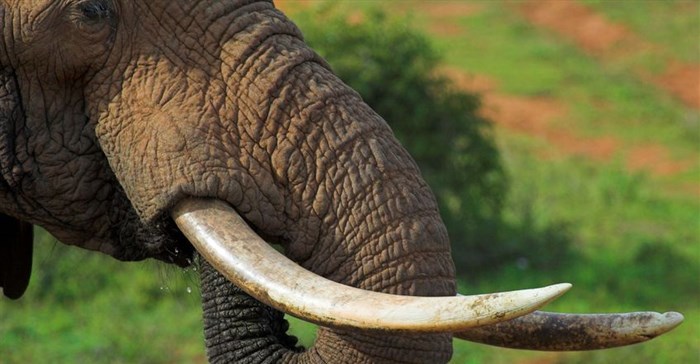Conservation activists on Thursday, 9 June, showed undercover video they say suggests that a "huge loophole" in Japanese law enforcement is hindering efforts to rein in illegal ivory trading.
Experts say most illegal ivory heads for China, where it is seen as a status symbol. By some estimates the country accounts for as much as 70% of global demand.
The Convention on International Trade in Endangered Species of Wild Fauna and Flora, or CITES, banned international ivory trade in 1989.
Japan also prohibits cross-border trade and authorities say ivory bought and sold inside the country was legally obtained before the ban or under special arrangements with African countries.
But the US-based Environmental Investigation Agency, a campaign group, covertly filmed four ivory traders in different cities in Japan who showed no hesitation in selling ivory to Chinese buyers.
The Japanese traders acted "knowing the tusks would be illegally exported to China", EIA said in a statement.
An undercover EIA investigator presented himself as a Chinese buyer and explicitly showed that he was willing to send ivory to China, EIA president Allan Thornton told reporters as the group showed the footage. "You came too late," a trader in Osaka is shown saying. "We sold so many ivory tusks that ivory has been vanishing from Japan."
Another trader in the central Japanese city of Gifu said: "I don't care, Okay? Illegal is okay."
Japanese laws create a "huge loophole" partly because traders do not have to register all the tusks they have unless they intend to sell them, and because no registration is required for cut pieces of ivory, Thornton said.
"Traders know that it is illegal to export the tusks, but they don't have any concern about selling the tusk to people who say they are going to illegally export them," Thornton said. "In the United States and other countries that would be conspiracy to break a law and that would be illegal."
The release of the footage comes weeks after the United States announced a near-total ban on the trade of African elephant ivory in the world's second-largest market for it after China.
Africa is home to between 450,000 to 500,000 elephants, but more than 30,000 are killed every year on the continent to satisfy demand for ivory, largely in Asia where raw tusks sell for around $1,000 a kilo.
"While China is busting criminals smuggling tons of illegal ivory tusks from Japan, no enforcement action is taken by Japan to prosecute ivory traders facilitating illegal ivory exports," said Danielle Grabiel, EIA senior policy analyst.
An environment ministry official was not immediately available for comment. An official at Japan's trade ministry, however, said authorities are closely monitoring registered traders while "such (illegal) cases fall under the category of criminal investigation".
Source: AFP



































